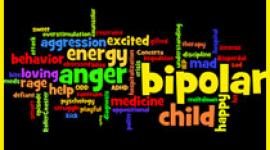Drug Cocktails for Mental Illness
Many patients receive multiple psychiatric medications for a mental health condition, but there's little scientific evidence to back the practice.
Mixing mental illness drug 'cocktails' is still more art than science.
 They call them drug cocktails. They're becoming the vogue for mental illnesses such as bipolar disorder and schizophrenia. But mixing drugs is still more art than science.
They call them drug cocktails. They're becoming the vogue for mental illnesses such as bipolar disorder and schizophrenia. But mixing drugs is still more art than science.
If you have a serious mental illness, it's becoming more likely that you'll be treated with multiple drugs. Doctors call this polypharmacy. Polypharmacy is common for conditions such as heart disease, cancer, and HIV infection. The basic idea is to attack the mental illness on multiple fronts, using different drugs with different actions.
That's the upside. It can offer mental illness patients tremendous benefits when doctors have a careful, rational plan for trying multiple drugs. But there's a downside, too, says Andrew C. Furman, MD, director of clinical services for psychiatry at Atlanta's Grady Memorial Hospital and associate professor of psychiatry at Emory University.
"Unfortunately, in the majority of cases doctors are just throwing everything they possibly can at a mental illness in hopes that something will get better," says Furman.
That happens too often, agrees Alan J. Gelenberg, MD, head of psychiatry at the University of Arizona and editor-in-chief of the Journal of Clinical Psychiatry.
"What often happens in busy practices, both private and public, is that medications are thrown on without adequate information," according to Gelenberg. "Patients can end up with regimens that include multiple drugs without a rationale for using them all. It is not uncommon to look at a medical chart and say, 'I can't figure out why a patient is on this combination regimen.'"
That can be bad news for mental illness patients, says Beth Murphy, MD, PhD, a psychiatric drug researcher at McLean Hospital in Belmont, Mass., and instructor in clinical psychiatry at Harvard University.
"The bad news is it costs more. And the more medicines you take, the more likely it is you will have an adverse response," says Murphy. "Moreover, it increases the chance your medicines will [harmfully] interact with one another."
Mental Illness: Much to Learn About Drugs
When they prescribe drugs for physical diseases, doctors usually know exactly how each drug acts on the body. What is more, they have a precise idea of how this helps treat disease. Drugs for mental illness work on the brain -- by far the most complex and least understood part of the body. That makes prescribing mental illness drugs far different from prescribing drugs for heart disease, Gelenberg says.
"Definitely the increase in psychiatric polypharmacy is not coming from a better understanding of disease," remarks Gelenberg. "Psychiatry isn't the same as cardiology in our understanding of the exact mechanisms of illness."
"This being the decade of the brain, there has been a burgeoning of understanding. But even with these incredible advances, the understanding of the brain is not at the same place as the understanding of the heart," says Murphy. "We don't have enough understanding to know exactly which medicines a given individual will respond to. We have increased our understanding of the biochemistry that underlies these illnesses, but we don't know all we would like to know."
Multiple drug treatment is becoming state-of-the-art treatment for bipolar disorder, notes Mark A. Frye, MD, director of the UCLA bipolar disorder research program and associate professor of psychiatry at UCLA's David Geffen School of Medicine. But he emphasizes the word "art."
"We have little clinical trial data on which to base this, so it is still more an art than a science," Frye says. "This is a painful contrast to other areas of medicine where doctors have large-scale clinical trial data to guide them. That is only just happening now in psychiatry."
Mental Illness: A Delicate Balance
If they don't know exactly what they are doing -- and there are no large clinical trials to guide them -- why prescribe multiple drugs for mental illness?
"This is part of a trend not to accept anything less than wellness," Murphy says. "Years ago, if a psychiatric patient was not in the hospital, that was good enough. Now, because of advances in our understanding of mental illness and mental wellness, health is the goal. So often multiple treatments are an attempt to reach that goal."
In the right patient at the right time, one mental illness drug can enhance the action of another, Frye suggests.
"There is a trend to maximize outcome, to use medications that enhance one another," he says. "We can clinically show that often when there is [enhancement], we get lower doses of both drugs and better adherence and fewer side effects."
What's needed, Gelenberg says, is balance.
"I talk about a balance of caution and the appropriate need to be aggressive in therapy," he says.
The Example of Bipolar Disorder
Bipolar disorder is perhaps the best example of a mental illness in which different drugs may be effective. These patients cycle between deep depression and mania or euphoria.
"People with bipolar disorder need different things at different times," Murphy says. "At some point they might need an antidepressant, at others they may need additional help to maintain their sleep cycles. So I think polypharmacy today is more of a fluid and responsive regimen than it would have been in the past."
That's a far cry from simply piling one mental illness drug on top of another.
"Most psychiatrists in the bipolar world start with one medication, then see how you do, then add a second or a third drug as needed," Frye says. "Should we start treatment with two or three drugs? I think it is an important theoretical question. I generally start with one drug now for bipolar patients, but that may change. If a clinical trial shows that new, first-break bipolar patients do better beginning with two drugs rather than one, I would change my practice. For now, a doctor will start with a single medication and go from there."
Mental Illness: What Patients Should Know
Rule No. 1: Don't stop taking your medication. If your doctor has prescribed multiple mental illness drugs for you and you aren't sure why, ask. Suddenly stopping any of your medications could seriously affect your treatment.
"Do not stop your medicine," Furman warns. "But it is always reasonable to discuss with your mental health provider what you are on and reappraise what medications you should take. By no means should you stop any medicine without talking to your doctor. You may be on three or four medications for very good reasons."
Rule No. 2: Find a doctor qualified to treat mental illness that you can talk to. Then, talk.
"The patient needs to ask, 'Why are we adding this drug? Should we subtract another drug? Is this the best dose? Is this really needed?" Gelenberg advises.
"Accurate reporting of your symptoms really will allow your psychiatrist to tailor your medical regimens to your needs," Murphy says. "There is a burden on the consumer to be aware of things like sleep cycles, to notice when a couple of nights in a row go by when you didn't seem to need any sleep, and to take this kind of information to your doctor."
Sources: Mark A. Frye, MD, associate professor of psychiatry, David Geffen School of Medicine, UCLA; director, Bipolar Disorder Research Program, UCLA. Andrew C. Furman, MD, associate professor of psychiatry, Emory University; director of clinical services for psychiatry, Grady Memorial Hospital, Atlanta. Alan J. Gelenberg, MD, professor and head of psychiatry, University of Arizona; editor-in-chief, Journal of Clinical Psychiatry. Beth Murphy, MD, PhD, assistant director, clinical evaluation center, and co-investigator, psychopharmacology clinical research unit, McLean Hospital, Belmont, Mass.; clinical instructor of psychiatry, Harvard University. Gelenberg, A.J. Annals of Clinical Psychiatry, September-December 2003; vol 15: pp 203-216. Zarate, C.A. Jr., Bipolar Disorder, June 2003; vol 37: pp 12-17. Frye, M.A. Journal of Clinical Psychiatry, January 2000; vol 61: pp 9-15.
next: ECT - Electroconvulsive Therapy for Bipolar Disorder
~ bipolar disorder library
~ all bipolar disorder articles
APA Reference
Staff, H.
(2004, October 12). Drug Cocktails for Mental Illness, HealthyPlace. Retrieved
on 2025, April 17 from https://www.healthyplace.com/bipolar-disorder/articles/drug-cocktails-for-mental-illness


